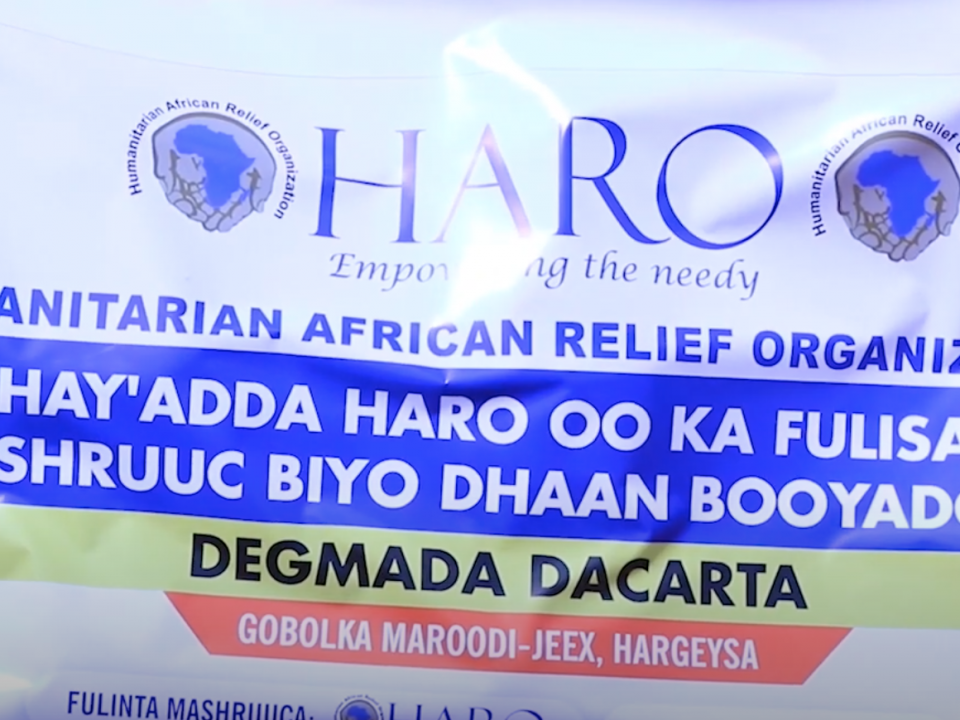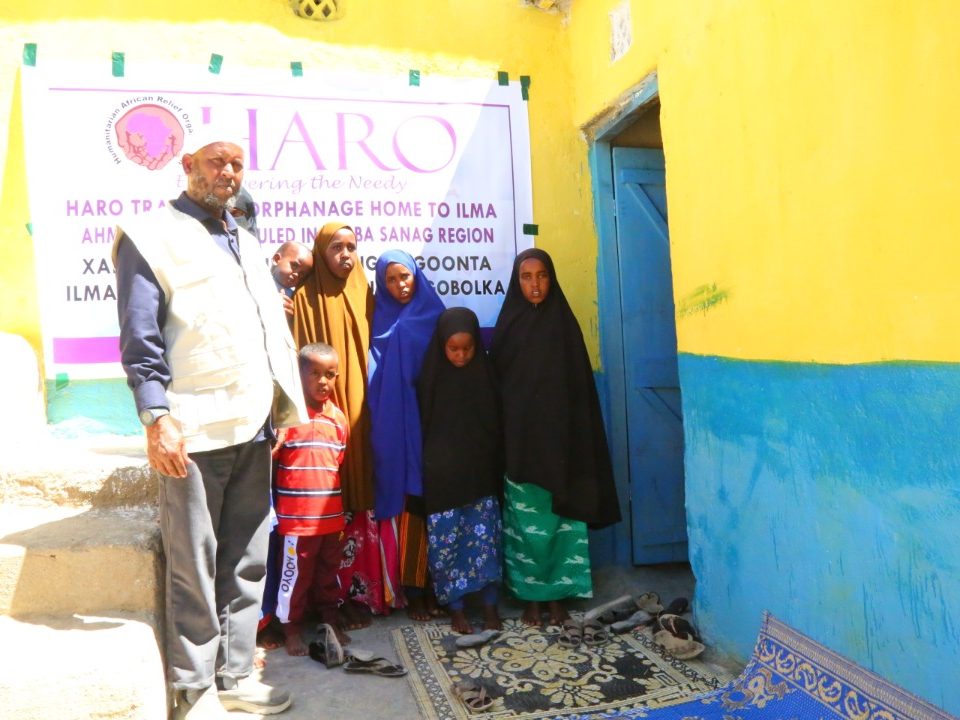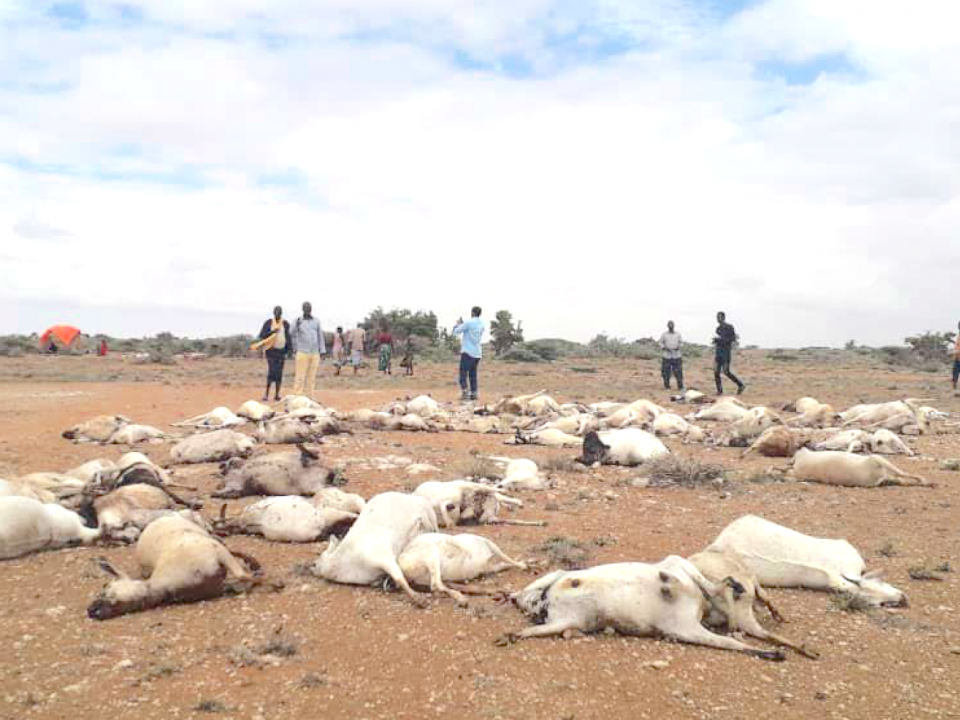HARO Launched a Humanitarian Assessment Mission to Mogadishu
HARO & WAMY took coordinated action to feed refugees in Kaluun camp in Muqdisho (images)
December 16, 2011Food for ‘Webi Shabbelle’ and ‘Qalaafe’ Camps
January 5, 2012I joined the Humanitarian African Relief Organization (HARO) team on an assessment mission to Mogadishu, Somalia, in the month of December 2011, taking a two week leave from my position as a Social Work Supervisor for the County of San Diego. I grew up and was educated in Mogadishu and remember everything the city had to offer at that time, such as restaurants, cinemas, and organized sporting events. Sitings of Imam, priest and Nuns socializing together in Cafe de Nazionale. Witnessing the effects of this humanitarian crisis first hand is heartbreaking. I’ve never seen a situation as devastating as what I witnessed in Somalia. It is not possible to make sense if you are not in it. Television pictures do not tell the full story.
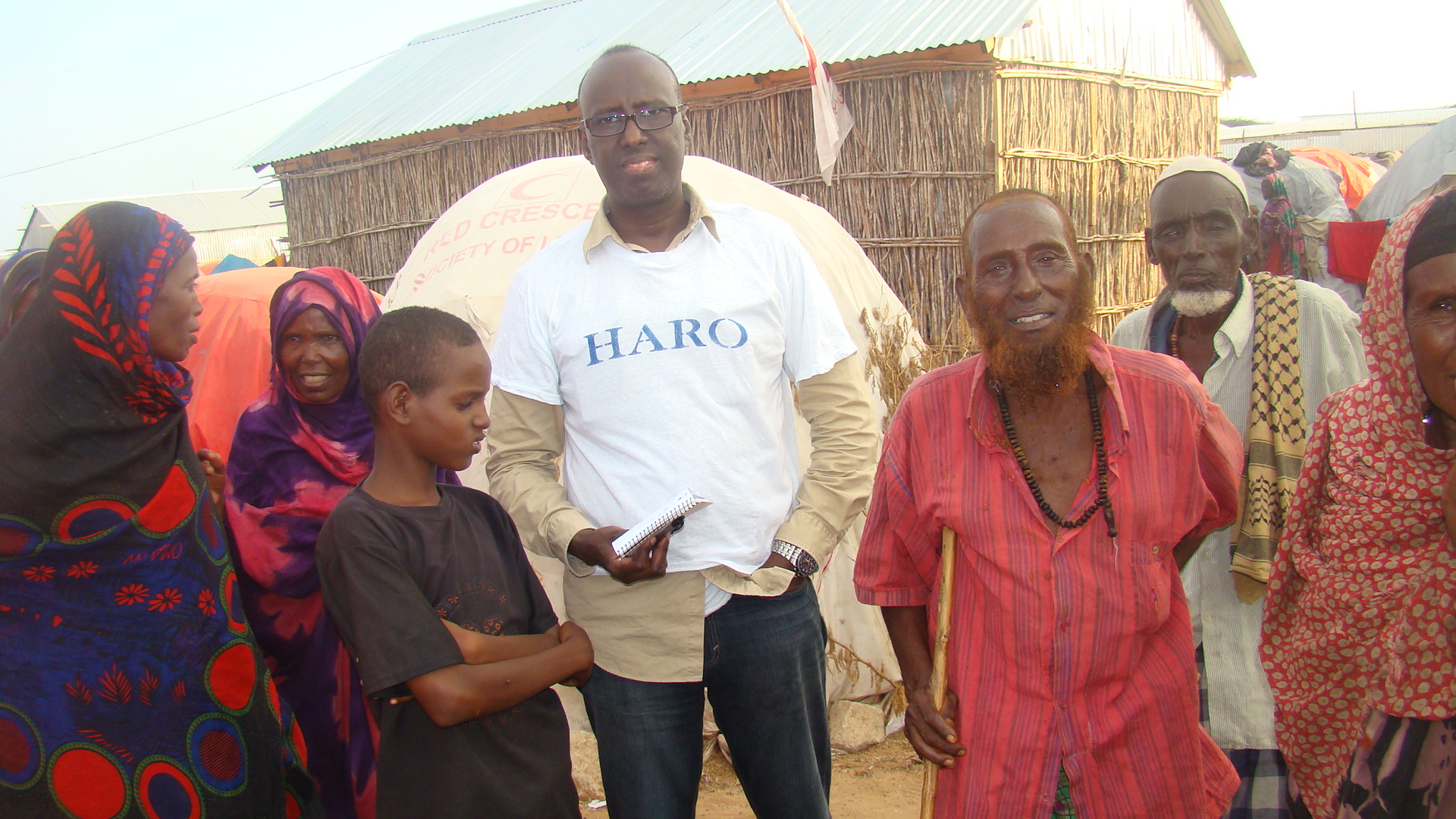 |
I visited several camps to assess the general conditions and to identify how HARO can assist with their needs. In Camp Badle, located at the site of a former American embassy in Mogadishu, I observed women sitting on the ground with their small children in their laps. I was struck by the fact that these children are missing what every child should be entitled to such as diapers, properly fitting clothes, shoes, and routine medical care. Parents are emotionally and psychologically affected, because there is nothing they can do to serve and protect the child. There isn’t a medical clinic in or near the camp. I discussed this with our Turkish partners who are committed to organizing visits by mobile health clinics as well as Ambulances.
In Camp Kulan, which is located near the airport, there is still a need for appropriate shelter. Many are living in shelters made of pieces of cloth secured to branches. My attention was immediately caught by the small children whose growth has been stunted my malnutrition running and playing without shoes in mismatched jerseys. Every child deserves an education. I observed classes being held under a tent with students sitting on the ground sharing a limited number of books without even basic school supplies. I also witnessed an elderly man named Omar mending mosquito net, which are needed to prevent malaria with an antique sewing machine. One machine for a camp of six hundred people.
 |
Many of those families are anxious to return home due to the overcrowding and poor living conditions in the camps which are unable to provide the basics such as privacy and an adequate number of toilets. I spoke with people who reported having to walk 60 days from drought stricken land to reach Mogadishu. They are now unable to return home without transportation. We need to explore the resettlements and Rehabilitation Projects and design alternatives; to enhance, or at least restore, the livelihoods of all displaced persons and to improve standards of living. Negative impacts include: loss of land, loss of structure, loss of livelihood. Mitigation measures include: 1) Vulnerable households to be identified as part of the resettlement plan; 2) Investment for agricultural lands; 3) Assistance for lost income earning for at least a year; 4) Vocational Training.
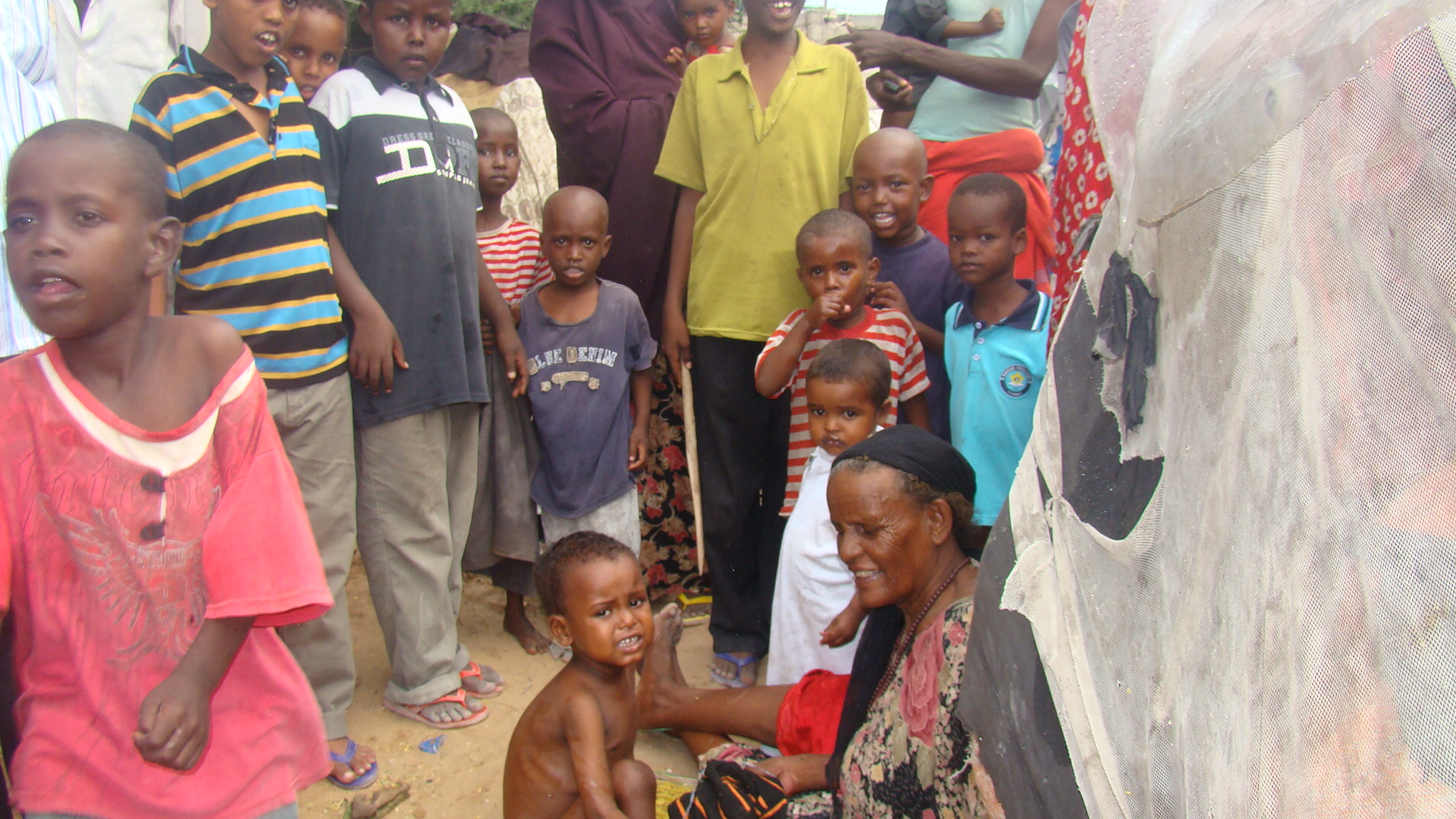 |
Most of refugees had been living in the Lower Shabelle, Bakool, Bay and Gedo regions of Somalia where they raised cows and goats. The drought killed all their animals and left them with nothing.
The hospital is so overstretched that there is not room or time to properly screen and separate or quarantine the incoming patients, so kids with diseases are side-by-side with kids who are malnourished.
The living conditions in the camps are imminent cause of the diseases outbreak. All the families who had been starving in the drought-ridden areas of Somalia all headed to Mogadishu in hopes of finding food and water. The people who arrived earlier settled anywhere they can find a tiny patch of dusty land. They build makeshift shelters from twigs, cardboard, and scraps of old cloth without access to clean water or sanitation facilities. Most sites don’t have adequate toilets and/or latrines. Improper human waste disposal is causing food and water contamination.
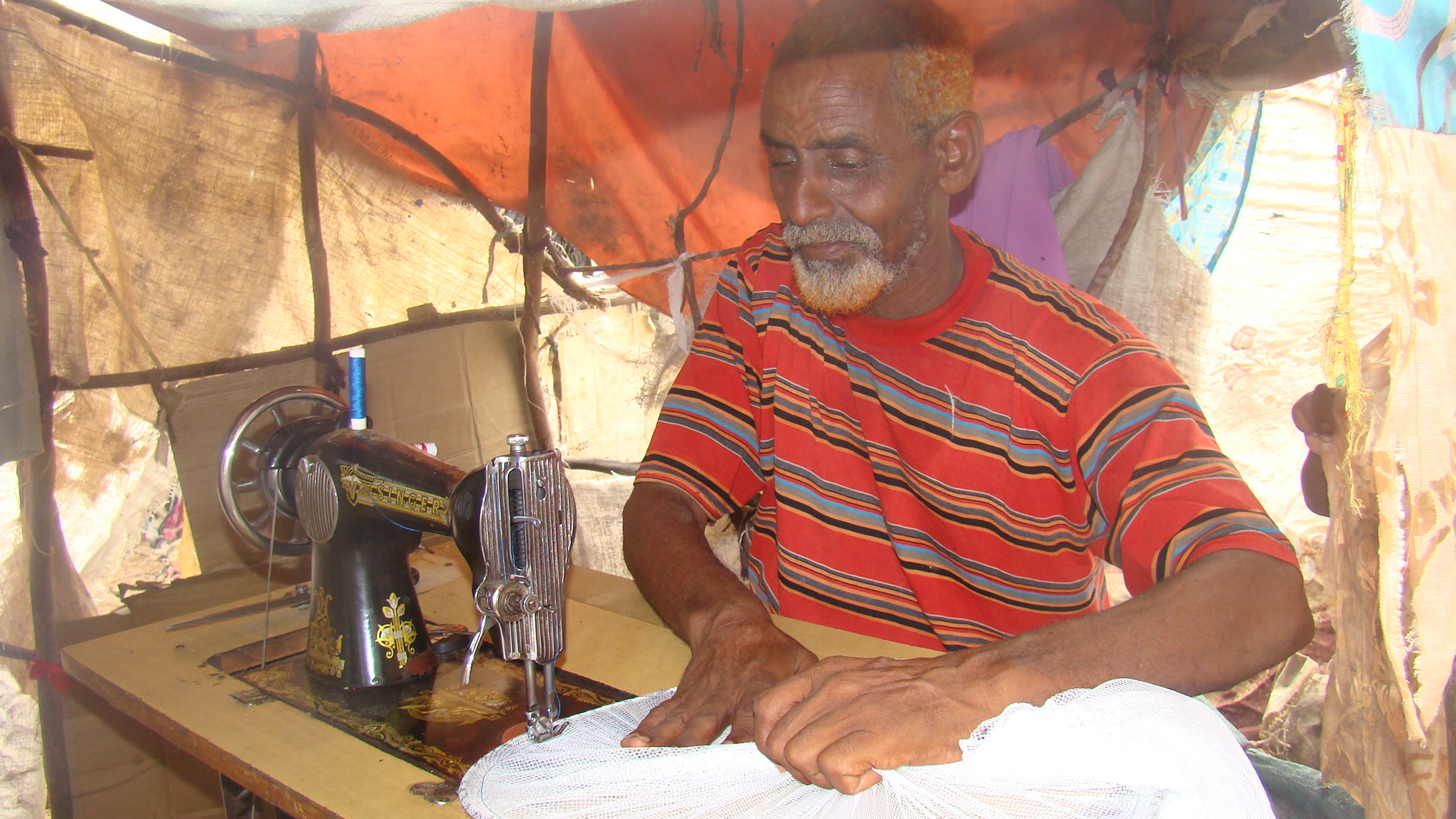 |
Since August, 2011 the Humanitarian African Relief Organization (HARO) which is based in San Diego, California has begun to distribute food, water, blankets, sleeping mats and other essential supplies to the people crowding into Mogadishu camps, but it is only scratching the surface of the crisis. During my visit, relief packages were distributed to some of the residents of Kaluun camp with collaborations of other existing Humanitarian Aid Organizations. An elder lady from Bakool region stated “We came here to survive; we are so appreciative of the charities donated by Turkey and United States. May Allah bless the people of both of these countries.”
Also, I would like to address the safety concerns that I have experienced during my visit in Mogadishu. Despite Al Shabaab’s withdrawal from Mogadishu, security fears remain a major hindrance to the international aid effort and the militants have vowed to return with suicide attacks and bombs. Aid conveys are often targeted for theft by clan-based militias as well.
If the Transitional Federal Government (TFG) and other existing institutions improve the security situation in Mogadishu and surroundings, then the international community will be able to do more to help those people who desperately need it.
As the UN and international aid agencies battle to operate out of Mogadishu, HARO and other small aid agencies (NGO) have been quietly bringing food, medical teams, and delivering aid as the famine in the Horn of Africa threatens to devastate Somalia.
The Turkish government mobilized many of their resources in Mogadishu to alleviate this humanitarian crisis as well as offering hope and sustainable solutions, which should serve as a role model to UN and other countries. I have witnessed in Mogadishu the Turkish Red Crescent, Turkish Health Ministry, YERYUZU doctors, Kimse Yok Mu working shoulder to shoulder with Somali people and handling all basic needs for those in all the camps in Mogadishu.
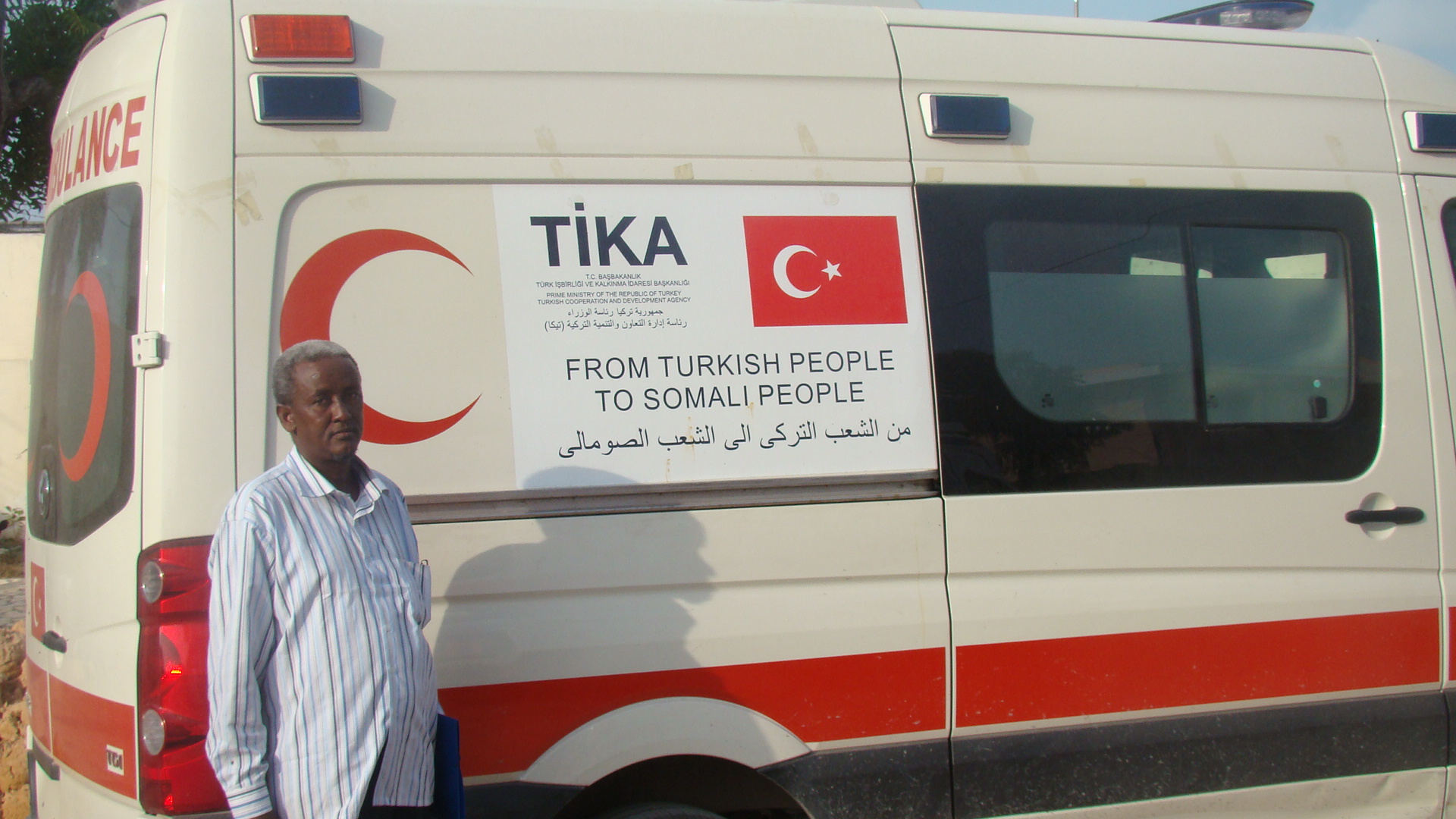 |
Most of UN agencies operate from Nairobi, Kenya, and operate through third-party persons in Mogadishu and it is never done as efficiently or effectively as you could imagine. There are so many competing interests in Mogadishu, so many trying to make an illegal income. The Somali-related U.N organization should move to Mogadishu which will be a positive step for this mission.
But as concerns grow over the mishandling of food aid and corruption by third-party contractors inside the country, there remains little understanding of the conditions inside the capital. Despite this, HARO and a small number of aid groups have refused to delegate their work there to third-party organizations. The Transitional Federal Government (TFG) praised the President of HARO Mr. Ali Abdinur for his commitment to serve, contribute and monitor the humanitarian assistance to needy people. We cannot save a million people ourselves, so we are focusing on what we can do. The donations from American people have saved and treated thousand kids in the camps and today visibly you can see they are running and playing soccer, something they couldn’t do before.
HARO has deployed 20 emergency staff and 10 Volunteers to Mogadishu, Dadaab and Southern Somalia to provide life-saving assistance to the new refugees. The Organization currently is seeking more financial support in urgent funds to respond to this famine crisis and resettlement strategies till the end of the next year.
Ultimately, engaging all the factions around the table is the only reasonable chance to restore peace and stability. If not, an entire generation will vanish…we fought for 21 years and yet we’ve achieved nothing? Continuing a relief work is not the solution.
Copy rights reserved for Humanitarian African Relief Organization
Ahmedei Cheikgurei – Senior Advisor
 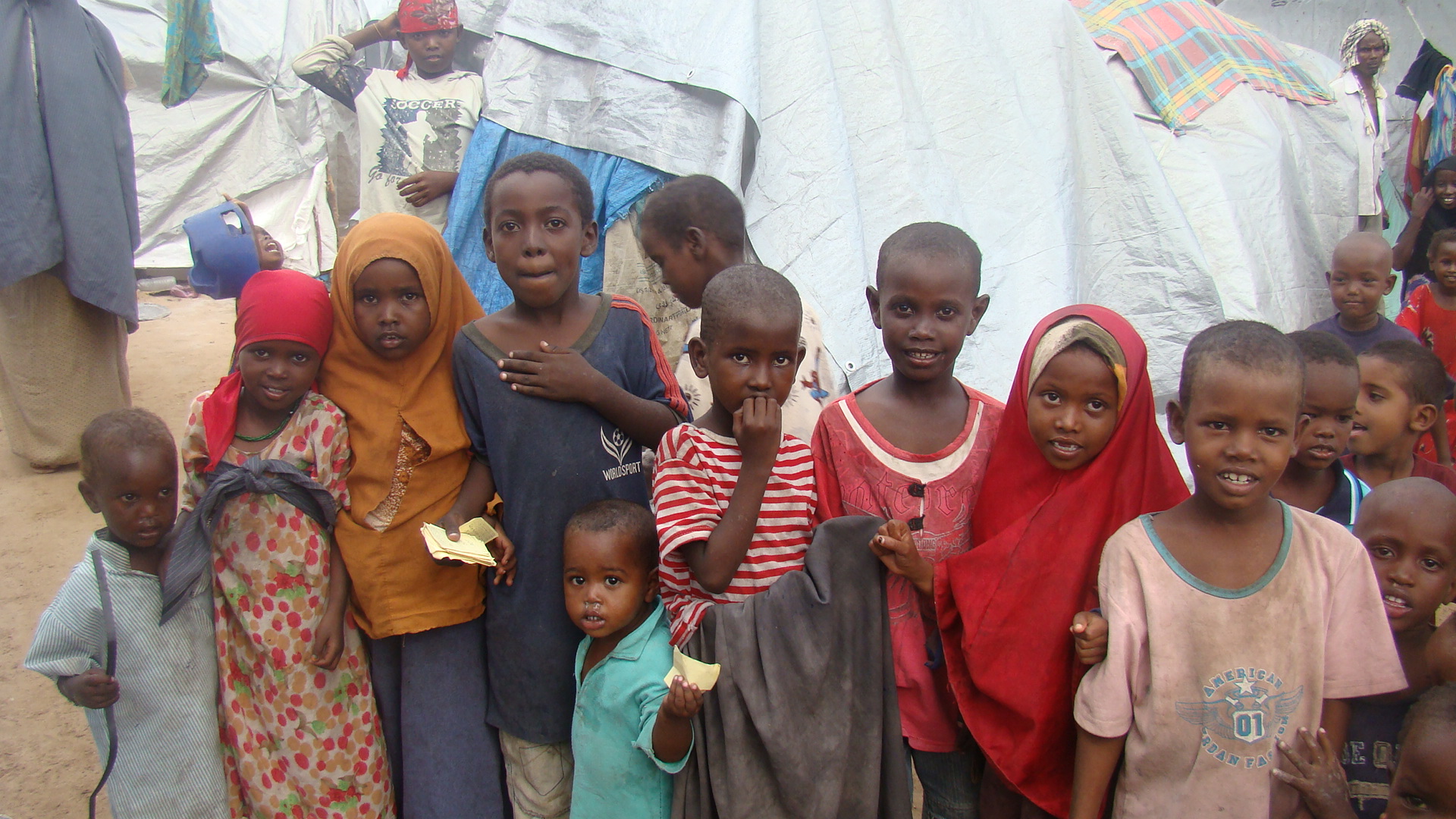 |

